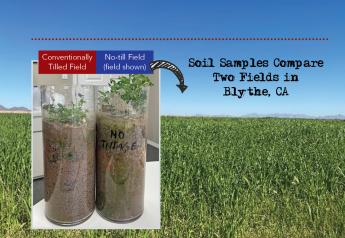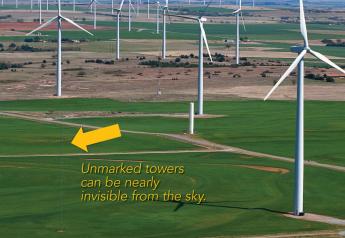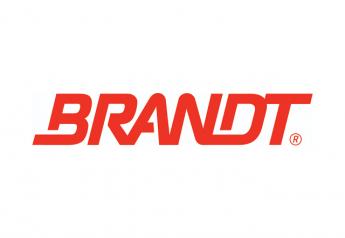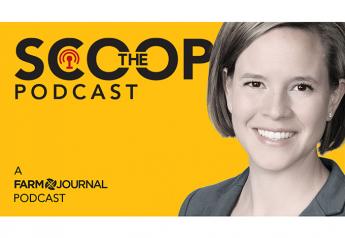U.S. Soy Processors Build New Capacity at Fastest Rate in 20 Years

U.S. agricultural cooperatives are building new soybean crushing plants at the fastest rate in two decades as farmers in the world’s top producer prepare to sow another record area with soy.
The growth worldwide in the number of consumers with income to spend on pork and chicken has led to a rapid rise in demand for food to raise animals. Crushing plants produce high-protein soymeal feed for livestock and soyoil for food and fuel.
U.S. processors are expected to open plants with capacity to process at least 120 million bushels of soybeans in 2019, up around 5 percent from existing capacity of an estimated 1.9 billion bushels.
The last time outright capacity grew that much was in 1997-98, according to U.S. Department of Agriculture and soy industry data.
Strong demand for feed has boosted crushing margins, the measure of profitability for the plants. Margins stand at more than a $1 per bushel, the strongest for 18 months, according to the CME Group.
The margins have encouraged processors to build more plants.
“Margins on soybean processing were very good, some of the best we’ve had in many years. And when the industry has good margins, you expand production,” said Mark Sandeen, vice president of product marketing at farmer cooperative Ag Processing Inc (AGP).
Growth in feed demand means crushing capacity worldwide will need to expand further.
Global soy production would have to increase by 20 percent over the next decade to keep up with feed consumption, said Tom Hammer, president of industry group National Oilseed Processing Association.
U.S. soy plantings totaled a record 90.2 million acres this year and the USDA in a preliminary forecast set plantings next year at 91.0 million acres. And while industry capacity could reach 2 billion bushels in under two years, the USDA said crushings likely will not reach that level until 2020-21.
AGP broke ground earlier this year on a new soy plant in Aberdeen, South Dakota, that will have annual capacity to process 40 million bushels.
Another cooperative, North Dakota Soybean Processors, planned to build a similarly sized facility for an estimated $287 million near the town of Spiritwood.
The plants will increase demand for local soybeans, potentially pushing up prices that farmers nearby will receive for their crops, and reducing transport costs.
Ryan Wagner, who grows soybeans about 50 miles away from the new soy plant in South Dakota, said the processor could add 10 to 15 cents to the local soybean price - an amount that might mean the difference between making or losing money.
Chicago Board of Trade soybean futures on Friday were $9.89-3/4 per bushel, down 2-1/4 cents.
“That basis will be nice but in the long run I think the greater economic impact will be the attraction of more opportunities for raising livestock because of the new supply of soybean meal,” Wagner said.
“We are already starting to see interest in our area for more pork and poultry production since the announcement.”
Family-owned Zeeland Farm Services plans to build the second plant in the state of Michigan with capacity of 40 million bushels, to open in 2019. The company built Michigan’s first soybean processor in 1996 in Zeeland.
The company will supply soybean meal to hog, turkey, dairy and aquaculture farms in Michigan and export both soymeal and soyoil, said Cliff Meeuwsen, president of Zeeland.
Due to a lack of processing plants in Michigan, much of the soybeans there are shipped to Ohio where merchant giants Archer Daniels Midland Co, Bunge Ltd and Cargill Inc have plants.
Soymeal then gets shipped back to Michigan to feed animals, raising costs.
“We hope to cut those costs out, thereby raising the price of soybeans to producers and cutting the cost of feed and protein to livestock producers,” Zeeland’s Meeuwsen said.
Earlier this year Perdue Farms opened a processor with capacity for 17.5 million bushels in Pennsylvania, that state’s first large-scale soy crushing plant.
Many of the new facilities are in places outside the central U.S. Midwest soy belt, taking advantage of increased supplies from farmers in those areas that have switched to soybeans from less profitable crops such as wheat.
Grain handlers will increase their profits by building the plants, as the margins are bigger for crushing than they are for simply buying and shipping soybeans, said Mike Steenhoek, executive director of the Soybean Transportation Coalition.
“The old adage is it’s better to export meat than (soy) meal and better to export meal than soybeans. You are always trying to export that higher-value product,” Steenhoek said.







